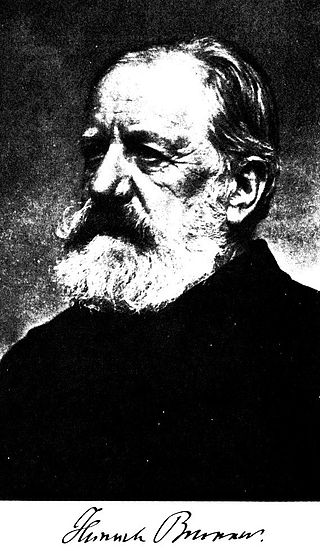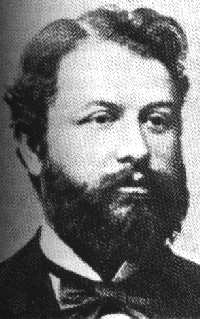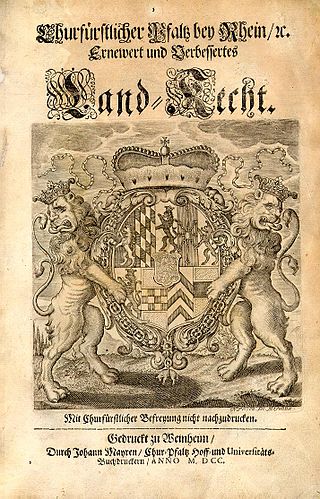Related Research Articles

Karl Renner was an Austrian politician and jurist of the Social Democratic Workers' Party of Austria. He is often referred to as the "Father of the Republics" because he led the first government of the Republic of German-Austria and the First Austrian Republic in 1919 and 1920, and was once again decisive in establishing the present Second Republic after the fall of Nazi Germany in 1945, becoming its first President after World War II.

Georg Friedrich Puchta was a German Legal scholar.

Heinrich Brunner was an Austrian legal scholar.

Georg Jellinek was a German public lawyer and was considered to be "the exponent of public law in Austria“.

Julius Ficker or Julius von Ficker or Johann Kaspar Julius Ficker von Feldhaus was a Roman Catholic German historian. In 1898 he was awarded the Pour le Mérite for Sciences and Arts.
Robert Weimar was a German professor of law and psychologist.

Heinz Gerstinger was an Austrian writer, playwright and historian.

Christian Michelides is an Austrian psychotherapist. He is the director of Lighthouse Wien.

Peter Landau was a German jurist, legal historian and expert on canon law.

The Landrecht was the law applying within an individual state in the Holy Roman Empire during the Middle Ages and Early Modern times. The state laws that emerged in the territories of the empire from the 12th century onwards had been developed from the older tribal laws of the Saxons, Swabians, Bavarians and Bohemians. Through privileges and laws passed by the territorial princes as well as the jurisprudence of the Landgerichte or state courts, these ancient rights were supplemented and developed. Later Roman law was also accepted and incorporated into the Landrechte. The Landrecht was only applied to the burghers of a town in a secondary way, because they came primarily under municipal law and the autonomous jurisdiction of their communities.

Gerald Stourzh is an Austrian historian who studies modern history, especially the history of North America, of Austria, of political ideas, of constitutions and especially of human rights. He taught, as a professor, at the Free University of Berlin from 1964 to 1969, and at the University of Vienna from 1969 until 1997, when he became professor emeritus.
Michael Kilian is a German legal scholar and a former justice of the Constitutional Court of Saxony-Anhalt. Until 1982 he was the private secretary of Walter Hallstein, who was the President of the Commission of the European Economic Community.

Böhlau Verlag is a book and magazine publisher predominantly of humanities and social science disciplines, based in Vienna and Cologne, with a branch in Weimar. They describe their focus as being "from the historically oriented humanities". The publishing house was an independent and privately owned media corporation until it was acquired by Vandenhoeck & Ruprecht in 2017.
Dieter Nörr was a German scholar of Ancient Law. He studied at the Ludwig Maximilian University of Munich from 1949 to 1953. After receiving his doctorate with a dissertation on criminal law in the Code of Hammurabi, Nörr undertook postdoctoral study at the University of Heidelberg and the University of Rome. He worked for a year as a post-doctoral assistant at the Institute for Criminal Law and Legal Philosophy under Karl Engisch. He received his Habilitation at the University of Munich, under Professor Wolfgang Kunkel, in 1959 with a work on Byzantine Contract Law and was promoted to Privatdozent. He then accepted the Chair of Roman and Civil Law at the University of Hamburg. In 1960, Nörr became Full Professor at the University of Münster. After he declined positions at the Universities of Hamburg, Tübingen, and Bielefeld, he returned to the Ludwig Maximilian University of Munich as Professor, Chair of Roman Law, and Director of the Leopold Wenger Institute for Ancient Legal History and Papyrus Research. His brother, Knut Wolfgang Nörr, was also a professor of Legal History, especially Canon Law, at the University of Tübingen.
Leopold Wenger was a prominent Austrian historian of ancient law. He fostered interdisciplinary study of the ancient world.
Alfons Bürge is a Swiss scholar of Ancient Law, with a special interest in the comparative study of Ancient and Modern Law.
Hubert Kaufhold is a German legal scholar and judge, with special research interests in the languages and legal history of the Christian Orient.
Max Kaser was a German professor of Jurisprudence who taught successively at the universities of Münster, Hamburg and Salzburg. The principal focus of his scholarship and teaching was on Roman law. He became a member of a number of learned societies. In addition, between 1958 and 1992 he was awarded honorary doctorates by no fewer than ten different universities on three different continents. An eleventh honorary doctorate, from the Jurisprudence faculty at the University of Regensburg, was awarded only posthumously, however, in 1999).
Kaja Harter-Uibopuu is an Austrian ancient historian, legal historian and epigrapher.
Alois Pogatscher was an Austrian philologist of English. His doctoral thesis was described in 2000 as "Die bislang umfassendste Arbeit zum Lehnwortschatz des Altenglishen".
References
- ↑ Website of the Institute for the History of Austrian Law and Development of European Law at the University of Graz, "Institut für Österreichische Rechtsgeschichte und Europäische Rechtsentwicklung". Archived from the original on 2014-12-29. Retrieved 2014-11-26.
- ↑ Website of the Austrian Institute for European Law and Policy, http://www.legalpolicy.org
- ↑ "Prior projects / Frühere Projekte". 24 April 2013.
- ↑ "Levitra and Cialis and Viagra, Order Levitra - Online Drug Shop, Worldwide Shipping". Archived from the original on 2013-10-14. Retrieved 2014-11-26.
- ↑ "Johannes PICHLER".